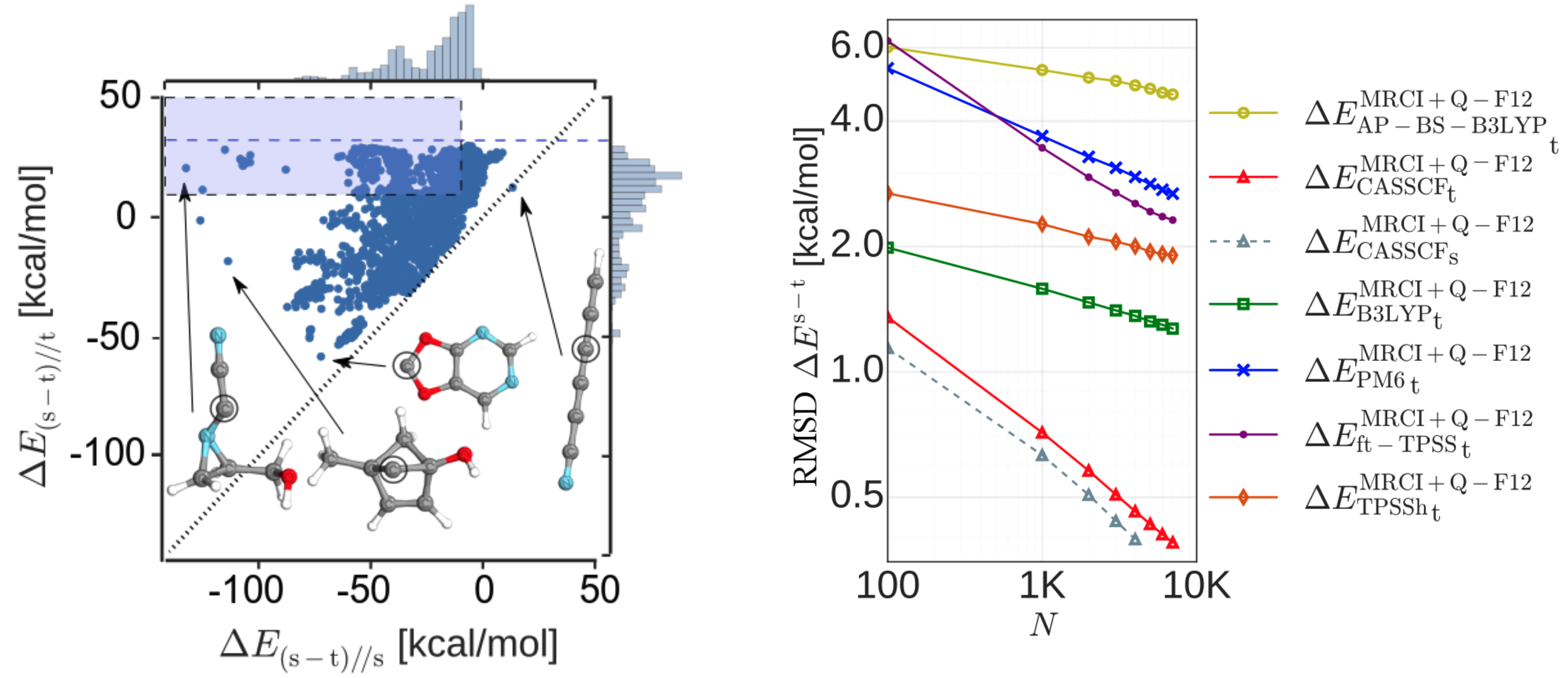Spin gap learning of carbenes with strongly correlated electrons
Machine learning (ML) of large chemical spaces of molecules with strongly correlated electrons is a mostly unexplored task. We present multi-level ML approaches for the QMspin carbene data set [1] with accurate learning of spin gaps in free carbenes at small computational cost [2], enabling accurate ML predictions for hundreds of thousands of carbene candidates in chemical space. Our recently published QMspin data set of ~13k carbene structures with singlet-triplet gaps computed at MRCI level of theory and verified carbene electronic structure also gives new fundamental insights into general carbene chemistry [1] that are tightly linked to the potential presence of strong electron correlation. Finally, it is shown how orbital entanglement, orbital energies, Coulomb, and exchange interactions of the carbene open shell orbitals can be accurately learned through chemical space [2] and how this constitutes a new approach to multi-state ML.

[1] Max Schwilk*, Diana N. Tahchieva*, O. Anatole von Lilienfeld, Large yet bounded: spin gap ranges in carbenes 2020, arXiv:2004.10600
[2] Diana N. Tahchieva*, Max Schwilk*, O. Anatole von Lilienfeld, Spin gap learning of carbenes with strongly correlated electrons 2020, in preparation
*equal contributions